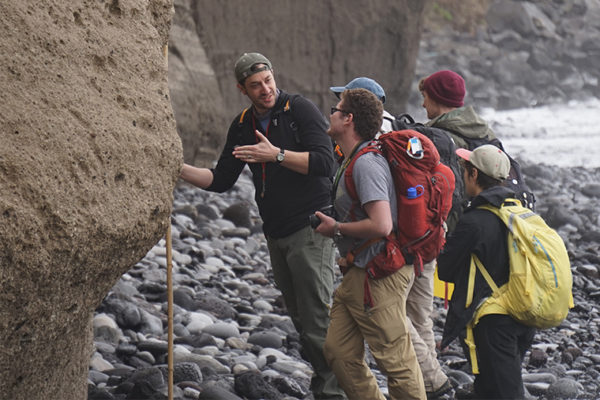Washington University in St. Louis junior Zach Eisner is working toward a future where all of the world’s citizens have access to quality emergency medicine. But until then, he is committed to training lay people in some of the world’s poorest countries to perform first aid.
“The taxi driver, the teacher, the average citizen on the street — these are the people who, with the right training and support, can save lives,” Eisner said.
Eisner, who is majoring in biomedical engineering at the McKelvey School of Engineering, co-founded LFR International — LFR standing for lay first responder — with 2018 alumnus Peter Delaney. The nonprofit offers lifesaving first aid training in nations without advanced emergency medicine, researches best practices in first aid education and advocates for Good Samaritan laws.

This year, Eisner and Delaney taught 1,000 people in Sierra Leone how to stop bleeding, conduct CPR, splint a broken bone and transport an injury victim on the back of a motorcycle. They were joined by LFR fellow Amanda Yu, a junior who is studying applied math and psychology in Arts & Science. Yu was integral to coordinating training and collecting data to ensure the sustainability of the program. A grant from University Libraries’ Newman Exploration Travel Fund covered much of Eisner’s costs.
“A motorcycle may seem like a poor substitute for an ambulance, but you can actually sit someone between the driver and a passenger to keep them steady,” said Eisner, who is an emergency medical technician. “It’s all about using the resources available in the ‘golden hour’ right after an injury has occurred and the victim is the most vulnerable. ”
According to the World Health Organization, 90% of traumatic-injury deaths occur in countries without emergency medical services. WHO also reports that traumatic injury is the leading cause of death for people between ages 15 and 45, killing more people than malaria, tuberculosis and AIDS combined. The suffering is particularly acute in Sierra Leone, where traffic accidents occur three times as frequently as in the United States. Sierra Leone, like 90% of Africa, lacks the kind of emergency medicine available here.
Before departing, Eisner learned the local language of Krio and studied Sierra Leone’s food, traditions and politics. But more importantly, Eisner contacted community leaders, from the secretary general of Sierra Leone’s Red Cross to doctors at the local hospitals, and asked one question: “Do you want us here?” The answer was yes.
“The community asked for collaboration,” Eisner said. “You can’t show up and say, ‘Hey, we’re going to do this new thing.’ If you want to build a sustainable program, it must be community-owned and community-driven.”
Eisner’s team focused on motorcycle taxi drivers who, by the nature of their work, witness most accidents and have the means to transport victims. But training was open to everyone, and within a week of LFR’s arrival, lines would form daily. Each person who completed the five-hour training received a certificate and a first aid kit, which can be replenished at depots established by LFR International. Follow-up research shows that trained taxi drivers continue to respond in emergencies and also reap some social-economic benefits such as greater respect and higher income, most likely because customers are more likely to select drivers whom they perceive as safe.
“There is a feeling of, ‘I did this, I can help people,’” said Eisner, who hopes to become a trauma surgeon. “As humans, we have an instinct when we see something horrible to run the other way. So it’s something when you have people saying, ‘Let’s run toward that person who needs help and get both of us out of here safely.’”



Comments and respectful dialogue are encouraged, but content will be moderated. Please, no personal attacks, obscenity or profanity, selling of commercial products, or endorsements of political candidates or positions. We reserve the right to remove any inappropriate comments. We also cannot address individual medical concerns or provide medical advice in this forum.